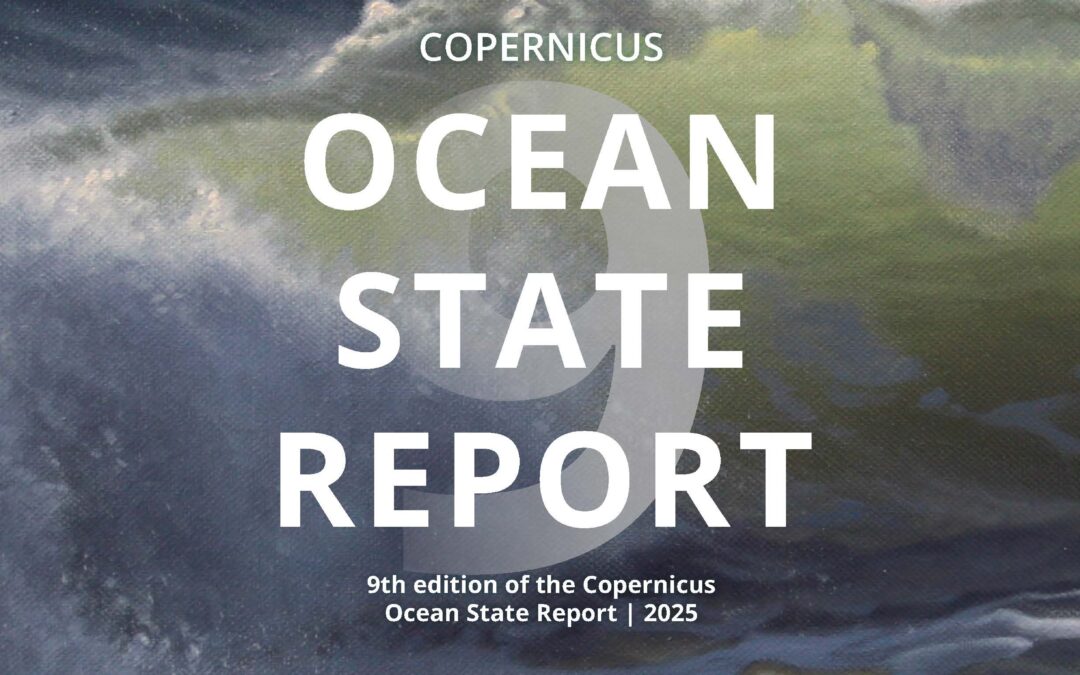The data from the 9th edition of the EU Copernicus Ocean State Report (OSR) is far from reassuring. Compiled by the Copernicus Marine Service with the involvement of over 100 experts from Europe and around the world, OSR 9 provides information on changes and variations in the ocean over recent decades, with a focus on extreme events in 2023 and 2024. According to the report, every part of the ocean is affected by the triple planetary crisis of climate change, biodiversity loss, and pollution.
The publication serves as a unique monitoring dashboard for the scientific community: using observation-based and ocean reanalysis data, the OSR offers a comprehensive four-dimensional analysis (latitude, longitude, depth, and time) of the Blue, Green, and White Oceans.
Among the main findings of this year’s report is the unprecedented ocean warming: in spring 2024, global sea surface temperature reached a record 21°C. Marine heatwaves have also been intense and persistent, affecting much of the ocean in 2023 and 2024, exceeding previous surface temperature records—such as those in 2015 and 2016—by 0.25°C.
Sea level rise is accelerating at record rates, raising concerns for housing and cultural heritage: global sea levels rose by 228 mm between 1901 and 2024.
Furthermore, the Mediterranean experienced the longest marine heatwave ever recorded in the summer of 2023, with surface water temperatures reaching 4.3°C above normal. This allowed invasive species to cause significant damage in Italy: Atlantic blue crabs led to a 75–100% collapse in clam production in the Po Delta, while bearded fireworms impacted artisanal fisheries in Sicily.
“The Ninth Copernicus Ocean State Report confirms that we are dangerously approaching planetary boundaries: every part of the ocean is now affected by the triple planetary crisis. In such a context, we need reliable science and operational tools more than ever. The Copernicus Marine Service — which Mercator Ocean has been implementing on behalf of the European Commission for nearly a decade — provides this unique foundation. Its annual report turns cutting-edge science into actionable knowledge, helping Europe and the world strengthen resilience, safeguard security, and protect the ocean for future generations.” said Pierre Bahurel, Director General of Mercator Ocean International.

